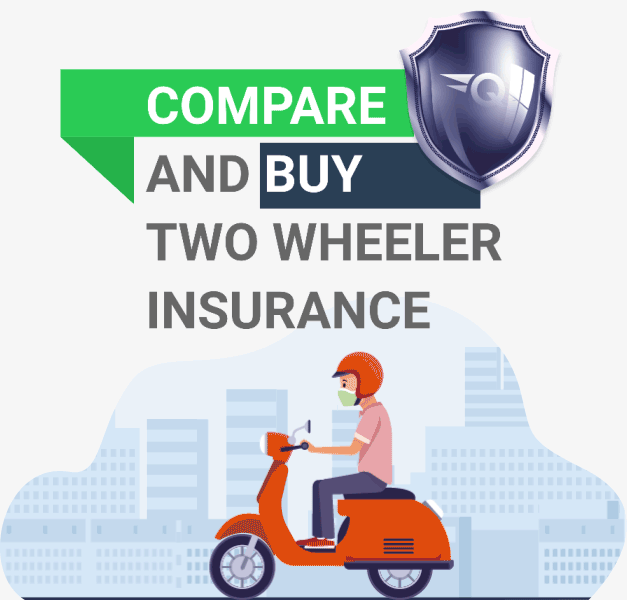
Continue with
Registration Number
Continue without
Registration Number
I Have
Brand new Bike
Frequently asked questions about bike insurance of IFFCO TOKIO -
1. What are the benefits of IFFCO TOKIOs Two-Wheeler Insurance?
Add-on covers include Depreciation cover, Consumable cover, Passenger cover, and Roadside Assistance cover.
2) Is it necessary to have a bike insurance Inspection after the policy has expired?
No, it is not compulsory.
3) Is it better to have a third party or to have comprehensive insurance?
Third-party liability is covered by third-party bike insurance, whereas comprehensive coverage includes both third-party and own-damage coverage.
4)Is it true that a higher IDV is better?
Yes, having the highest IDV is usually preferable.
5)What is the disadvantage of having less IDV?
You are at larger risk if your IDV is less.
6)Why is my bikes IDV diminishing year after year?
Your vehicle's IDV decreases every year as a result of depreciation.
7)Can I customize my IDV to meet my specific needs?
Yes, depending on your needs, you can increase or decrease your IDV.
8)How does a greater IDV affect the premium amount?
Premium gets increased as the IDV increase.
9) Does my comprehensive motorcycle insurance cover engine repairs?
Yes, the vehicle's engine is covered by comprehensive bike insurance.
10) Does comprehensive motorcycle insurance cover passengers?
NO, comprehensive bike insurance does not include passenger coverage.
11)How much of a discount will NCB policyholders receive?
You will receive an NCB discount ranging from 20 percent to 50 percent.
12)Does a bike have to have zero depreciation?
Although zero depreciation is not required for bike insurance, it is highly recommended.
13)What are some synonyms for zero depreciation?
Zero depreciation was also referred to as nil depreciation or bumper to bumper coverage.
14)In the context of bike insurance, what is NCB?
A bonus that is not claimed is referred to as a No Claim Bonus. All insurers offer a discount on their own damage premium for claim-free years.
15)Who is the policyholder or insured?
A person who wants to insure himself for any unexpected event is called insured.
 FUTURE GENERALI TWO WHEELER INSURANCE
FUTURE GENERALI TWO WHEELER INSURANCE IFFCO TOKIO TWO WHEELER INSURANCE
IFFCO TOKIO TWO WHEELER INSURANCE RELIANCE GENERAL TWO WHEELER INSURANCE
RELIANCE GENERAL TWO WHEELER INSURANCE HDFC ERGO TWO WHEELER INSURANCE
HDFC ERGO TWO WHEELER INSURANCE SHRIRAM GENERAL TWO WHEELER INSURANCE
SHRIRAM GENERAL TWO WHEELER INSURANCE THE ORIENTAL TWO WHEELER INSURANCE
THE ORIENTAL TWO WHEELER INSURANCE UNITED INDIA TWO WHEELER INSURANCE
UNITED INDIA TWO WHEELER INSURANCE BAJAJ ALLIANZ TWO WHEELER INSURANCE
BAJAJ ALLIANZ TWO WHEELER INSURANCE TATA AIG TWO WHEELER INSURANCE
TATA AIG TWO WHEELER INSURANCE SBI GENERAL TWO WHEELER INSURANCE
SBI GENERAL TWO WHEELER INSURANCE THE NEW INDIA ASSURANCE TWO WHEELER INSURANCE
THE NEW INDIA ASSURANCE TWO WHEELER INSURANCE CHOLAMANDALAM MS TWO WHEELER INSURANCE
CHOLAMANDALAM MS TWO WHEELER INSURANCE UNIVERSAL SOMPO TWO WHEELER INSURANCE
UNIVERSAL SOMPO TWO WHEELER INSURANCE ICICI LOMBARD TWO WHEELER INSURANCE
ICICI LOMBARD TWO WHEELER INSURANCE